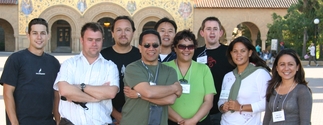
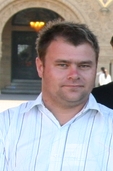 Brett Eruera Ellison
Brett Eruera Ellison
Ko Aoraki te mauka, ko Waitaki te awa, ko Kāi Tahu te iwi, Kāi Te Ruahihihiki te hapū, ko Tamatea te whare, ko Otakou te wāhi, ko Brett Eruera Ellison taku ingoa, tēnā koutou katoa
I was born and raised on the family farm at Otakou, a short walk from Otakou Marae, located on the Otago Peninsular near the southern city of Dunedin. Early years were balanced between understanding the changing environmental conditions necessary to ensure profitability from the land, whilst increasingly appreciating the linkages between my ancestors and the surrounding natural environment which forms an integral component of the identity that is Te Rūnanga o Otakou. The relationships developed between whānau, the family farm, the marae, and the wider-community remain strong, and form an integral part of the person I am today.
My education has been largely local, although several years were spent in England employed as a financial manager. In recent years tertiary studies have focused on human geography at the University of Otago (Te Whare Wānaka o Otakou). Having completed a bachelor of arts in 2004, I am presently finishing my Masters thesis entitled ‘Grassroots responses to Marginalization: Community based-development in rural South Africa’. This research is largely ‘development’ focused, which considers alternative tools for marginalized communities in post-apartheid South Africa to stimulate sustainable economic development. The case-studies for the research have been utilizing indigenous plant products, which in turn are harvested and processed into tea, and sold via the international Fair Trade markets. A central argument is that development focused at the community level can offer both economic benefits, alongside a heightened and more pronounced environmentally sustainable focus.
During these studies there has also been the opportunity to work closely with Dr. Gail Tipa (Kāi Tahu) developing indigenous planning, management and research tools on the lower Taieri River. This process has involved consultation, facilitation, and encouragement of indigenous participation in environmental management. From a personal perspective I am increasingly interested in exploring alternative and diverse strategies in biodiversity protection, of which indigenous communities will play an important role. A key theme for all my future work will be translating Kāi Tahu visions of environmental management into tools to be used by future generations.
Mō tātou, ā, mō kā uri ā muri ake nei.
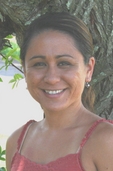 Leslie Kaiu Kimura
Leslie Kaiu Kimura
Tracing her ‘ohana lineage back many generations to Waimea, Hawai’i, Kaiu Kimura is a student of Ka Haka ‘Ula o Ke’elikolani, Hawaiian Language College at UH-Hilo where she is pursing a Masters degree in Hawaiian Language and Literature.
Kaiu is a graduate of the Kamehameha Schools class of 1996 and went on to pursue a bachelor of arts degree at UH-Hilo in Hawaiian Studies. She completed her studies there in the year 2000. While at UH-Hilo, she participated in the first UH-Hilo student exchange program with the University of Waikato in Hamilton, New Zealand where she spent a semester studying Maori language and culture.
Kaiu lectures for the Hawaiian Language College, teaching first level Hawaiian language. She has also worked for the ‘Aha Punana Leo in various positions including the facilitator of Hale Kipa ‘Oiwi, an outreach program to other Native American communities and indigenous groups worldwide, working towards language and culture revitalization, and has also developed language curriculum offered to Hawai’i’s business community. Kaiu is currently the Experience Coordinator at the ‘Imiloa Astronomy Center of Hawai’i where she played an integral role in developing exhibits and programs.
Her passion and commitment is to her community and to the return of the Hawaiian language as a living, thriving language of Hawai’i.
 Noa Lincoln
Noa Lincoln
I was born in Kealakekua and raised in Ma’alaea Harbor on Maui. I boarded at Kamehameha Schools from the seventh grade, finishing top 2% of my class. I received my B.A. from Yale University in Environmental Engineering. I have studied environmental management techniques all around the Pacific from Palmyra to Costa Rica and since graduation have worked with involving students in conservation and cultural oriented projects. Currently I am the education coordinator for the Bishop Museum’s Amy B.H. Greenwell Ethnobotanical Garden located in Kealakekua, Hawai’i where I focus on teaching a mix of ethnobotany and modern science to students and adults.
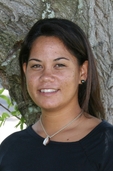 Jamie Anne Kawailehua Makasobe
Jamie Anne Kawailehua Makasobe
Jamie Anne Kawailehua Makasobe’s `ohana comes from Kane’ohe and Waianae, Oahu, and has been raised a majority of her upbringing on the Windward side. She currently serves as Communications Coordinator and Office Manager for Paepae o Heeia, a non-profit organization, that helps to take care of He’eia Fishpond while perpetuating cultural sustainability for communities of Hawaii through education.
Her studies include a Bachelors of Arts Degree from the University of Oregon, double majoring in Public Relations and Television Broadcasting.
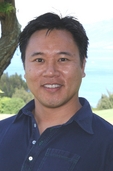 Daniel Nahoʻopiʻi
Daniel Nahoʻopiʻi
Fellow Daniel Naho’opi’i serves on the Board of Directors of Hawaii Maoli, a non-profit entity of the Association of Hawaiian Civic Clubs, where he facilitates cultural and educational grants and contracts that provide services and support to the Native Hawaiian Community — Helping Hawaiians to build strong and healthy communities. Daniel Naho’opi’i also serves as a Manager in the Hawaiian Databook & Doc. division for the Kamehameha Schools Bishop Estate.
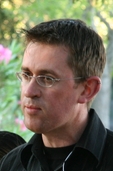 David O’connell
David O’connell
I am of Ngāi Tahu, Ngāti Mamoe and Waitaha descent – the tribal people who occupy the majority of Te Waipounamu, the South Island of Aotearoa/New Zealand. I am married to Patsy Perenara and together we have two daughters, Te Puawai (6) and Rerekiao (3), and a son Kāmaioha (4 mths).
I have worked for my iwi (tribe) for 14 years; 5 years in the tribal Whakapapa (Genealogy) Unit, 4½ years for my local tribal council Te Taumutu Rūnanga and 4½ years in the tribal Environmental Unit. I have managed this Unit for the past 2 years. Whilst working I completed a Bachelor of Arts (Majoring in Māori) at Canterbury University.
I have held tribal representative positions on the Canterbury Aoraki Conservation Board, the Te Waihora Eel Management Committee, and currently a customary tangata tiaki (resource manager) for Te Waihora (Lake Ellesmere) and 30 kilometres of the Canterbury Bight coastline. I was the Ngāi Tahu member of the Steering Committee of the 3rd International Wildlife Management Congress and assisted in organising the Indigenous Day Conference of that Congress.
I have been an active member of Te Taumutu Rūnanga for 18 years and have held the position of Alternate Tribal Representative, and am currently the Treasurer, Marae (Meeting House) Development Portfolio Leader, and Chair of Te Taumutu Charitable Trust.
My most recent achievement has been policy development for, and project management of, the Te Waihora Joint Management Plan – a shared tribal / government plan for the Ngāi Tahu owned lakebed and adjoining Crown Conservation lands.
Mehemea au ka tu ohu ai me maunga teitei
If I should have to bow my head let it be to a lofty mountain
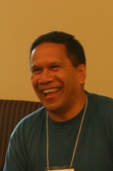 Brendon Te Tiwha Puketapu
Brendon Te Tiwha Puketapu
Tënä koutou katoa
My name is Brendon Te Tiwha Puketapu. I live with my partner Catherine Bourke in Christchurch with our daughter, Mahony who is 18 months old, and my daughter Atarea who is seven years old.
I have been the Chief Executive Officer for Te Tapuae o Rehua Ltd, which is based on Christchurch, for just over two and a half years. This company is a partnership between Ngäi Tahu and the larger tertiary institutions in Te Waipounamu. The partners are committed to delivering and producing better results for all Mäori. You can find our more information by visiting www.tetapuae.co.nz
Prior to this I held senior management positions in the public sector – the Ministry of Education, New Zealand Qualifications Authority, the Ministry for Mäori Development and the State Services Commission. My academic background includes Mäori studies, development studies and organisational theory and practice.
My whakapapa ties – ancestral relationships are particularly close with tribal groupings on the west coast of the North Island – Te Atihaunui a Paparangi, Ngäti Rangi, Ngä Rauru, Te Atiawa, Ngä Ruahinerangi, Ngäti Ruanui.
My iwi and hapü commitments are focused on the settlement of the Whanganui river claim though I am also involved in the planning, establishment and implementation of strategies and structures in iwi education, social and economic areas for Te Atihaunui a Paparangi. I contribute to Whanganui iwi affairs through my role as deputy chair of the Whanganui River Mäori Trust Board, my advisory role with Te Puna Mätauranga o Whanganui (an iwi education authority), and related iwi (tribal) projects.
I have served on various boards and councils in the past 20 years. Since moving to Christchurch I have been less involved in such activities. Besides my iwi involvements, I am currently an associate director for Paraninhi ki Waitotara Incorporation – a farm-based incorporation on the west coast of the North Island and I sit on the board for the New Zealand Council for Education Research (NZCER).
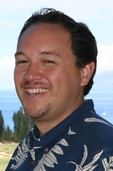 Layne Kahinuonalani Richards
Layne Kahinuonalani Richards
Layne Kahinuonalani Richards is a high school biology teacher at Kamehameha School Hawai`i Campus. He was also the Administration Director and a founder of Halau Ku Mana Charter School in Honolulu, education specialist at the Office of Hawaiian Affairs, vice president of the Hawai`i Association of Charter Schools, and a member of several community organizations, such as Native Nations Education Foundation and Kai Makana. Layne has a B.A. in Pacific Business, a certificate in International Business, and was a graduate fellow in the Leadership for Educational Entrepreneurs program at Arizona State University. Layne enjoys the visual arts, Hawaiiana, and travelling.


